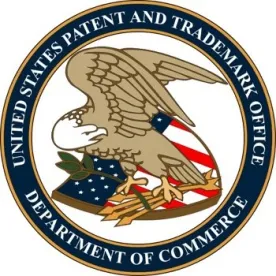A number of patent and trademark offices in other countries have extended prosecution and/or maintenance deadlines because of the COVID-19 pandemic. The United States Patent and Trademark Office (USPTO) had not joined them because it lacked authority to alter statutory deadlines. Congress has remedied the situation by passing on March 27 the “Coronavirus Aid Relief, and Economic Security Act” (CARES Act), which gives the USPTO the authority to extend statutory deadlines. The bill is on the president’s desk to sign.
On March 16, the director of the USPTO detailed the office’s steps to provide relief. These measures include waiving filing fees for petitions to revive trademark applications or reinstate trademark registrations abandoned for failure to respond to office actions due to the effects of COVID-19. The director expressly stated that the relief “does not grant waivers or extensions of dates or requirements set by statute” (such as Section 8 maintenance and Section 9 renewal deadlines) and that statutory fee requirements would also remain.
The CARES Act gives the director the authority to extend statutory deadlines during the COVID-19 crisis. Section 12004 of the legislation provides “the Director may toll, waive, adjust, or modify, any timing deadline established by title 35, United States Code, the Trademark Act, section 18 of the Leahy-Smith America Invests Act (35 U.S.C. 321 note), or regulations promulgated thereunder.” To do so, the director must determine that the COVID-19 emergency “materially affects the functioning” of the USPTO, “prejudices the rights of applicants, registrants, patent owners, or others appearing before” the USPTO, or “prevents” such people “from filing a document or fee” with the USPTO.
Under the legislation, the director’s authority to take action with respect to statutory deadlines will last for 60-days after the ending of the declared national emergency. If the period when the modifications of statutory deadlines are in place exceeds 120-days, the director must submit a statement to Congress describing the office’s actions, and its rationale.
What is the impact of this legislation on trademark and patent owners? In the immediate term it removes the pressure to meet statutory deadlines while offices are closed and people are sheltering in place. Less obviously, it will also help businesses with their cash flow by allowing them to redirect funds earmarked for filing, prosecution and maintenance fees. In the case of trademark owners, it allows them time to determine if there is a business interest in continuing to prosecute particular trademark applications or maintain trademark registrations, as well as to make bona fide commercial use.
Further information should be coming from the USPTO regarding how it will exercise this authority and we will monitor that news.




 />i
/>i

